The Weird Times: Issue 59, June 27 2021 (V2 #7)
Bad men need nothing more to compass their ends, than that good men should look on and do nothing. —John Stuart Mill
“Republicans are defending the same principle that Senator Stephen A. Douglas advanced when he debated Senate candidate Abraham Lincoln in Illinois in 1858….
I found it chilling to hear Douglas’s argument from 1858 echo in the Senate today, for after seeing exactly how his argument enabled white southern legislators to cut their Black neighbors out of the vote in the 1870s and then pass Jim Crow laws that lasted for more than 70 years, our lawmakers should know better. How is it possible to square states’ rights and equality without also protecting the right of all adult citizens to vote? Unless everyone has equal access to the ballot, what is there to stop Douglas’s view of “the good of society” from coming to pass yet again?” —Heather Cox Richardson, Letters from an American, 6/22/21
O Earth, O Sky, O Ocean, both surpassing,
O heart of mine, O soul that dreads the dark!
Is there no hope for me? Is there no way
That I may sight and check that speeding bark
Which out of sight and sound is passing, passing?
—from “Ships that Pass in the Night” by Paul Laurence Dunbar, born June 27, 1872, died February 9, 1906
First, People
The COVID-19 Outbreak in the Navajo Nation, Donavan Quintero, Developing Stories, National Museum of the American Indian online exhibit.
In March 2020, COVID-19 started ravaging the Navajo Nation, turning it into a national hot spot for the virus. The infection rate among Diné (Navajo people) was aggravated by several issues, including chronic underlying illnesses, food and water insecurity, and a lack of electricity among a third of households. Many Diné live in extended families where COVID-19 can spread quickly. There are often vast distances between households and towns, which can make it difficult for Diné to receive public health messages and medical assistance.
Donovan Quintero, a photojournalist for the Navajo Times - Diné bi Naaltsoos, has documented the pandemic’s impact throughout the Navajo Nation and the Diné’s response to it. He began documenting the pandemic when it first struck the reservation. In this photo essay, Quintero explores how the Diné have been impacted by the pandemic and how they have taken care of one another. His photos capture the vast expanse of the reservation and the isolation and resilience of the Diné. His essay also highlights the critical roles played by tribal council members, police, health care workers, and the unsung heroes of the pandemic. The essay ends with the COVID-19 vaccine rollout and Diné prayers for the future.
How Indigenous memories can help save species from extinction: From Canada to the Amazon, scientists are trying to build on Native knowledge before it’s too late, Karen Pinchin, Vox, 6/24/21
Even Canada’s very first fisheries legislation tried to force Indigenous memories and stewardship out of the equation, says Andrea Reid, a Nisga’a Nation citizen and the principal investigator at UBC’s new Centre for Indigenous Fisheries. The government went so far as to ban freshwater fishing weirs and nets that allowed for sustainable harvesting.
One great irony, Reid says, is that Indigenous “ways of knowing” are now widely seen as “inherently scientific” in her field, in that they use experimentation and observation to learn about nature. “Many Indigenous fishing approaches stem from relational values that treat fish as relatives that we live in reciprocity with,” says Reid. “Not commodities that we exploit or command and control.”
Dispossessed, Again: Climate Change Hits Native Americans Especially Hard: Many Native people were forced into the most undesirable areas of America, first by white settlers, then by the government. Now, parts of that marginal land are becoming uninhabitable, Christopher Flavelle and Kalen Goodluck, NY Times, 6/27/21
From Alaska to Florida, Native Americans are facing severe climate challenges, the newest threat in a history marked by centuries of distress and dislocation. While other communities struggle on a warming planet, Native tribes are experiencing an environmental peril exacerbated by policies — first imposed by white settlers and later the United States government — that forced them onto the country’s least desirable lands.
And now, climate change is quickly making that marginal land uninhabitable. The first Americans face the loss of home once again.
Now, birds
Source of a Weird Quantum Sense Found in an Actual Migratory Bird for The First Time, Mikle McCrae, Science Alert, 6/23/21
When you're as tiny as a European robin, crossing the continent for the winter is no small feat. We now know its secret to keeping on track over vast distances – an innate ability to harness the weirdness that sits at the heart of quantum physics.
Migratory birds aid the redistribution of plants to new climates: Birds that travel long distances can disperse seeds far and wide. An assessment of the timing and direction of European bird migration reveals how these patterns might affect seed dispersal as the planet warms, Barnabas H. Daru, Nature, 6/23/21
Despite massive effort, spotted owl populations at an all-time low: A threatened owl could disappear from much of its range unless old-growth forests are protected and invasive barred owls are controlled, Kyla Mandel, National Geographic, 6/24/21
Have you seen this bird? Why Mississippi wants sightings of swallow-tailed kites reported: 'It is such a distinctive species because of its really long wings and really long, forked tail. I think it's the most beautiful bird on the planet. They seem heavenly,’ Brian Broom, Mississippi Clarion-Ledger, 6/4/21
Swallow-tail kites begin arriving in Mississippi as early as late February . They leave between mid-July and early September — and their journey is a long one.
"They go all the way down to southern Brazil," Coulson said. "The round trip is around 10,000 miles.
"They cross the Andes at their highest point in Columbia. They are globetrotters."
Uh Oh
Earth tipping points could destabilize each other in domino effect: study, Elizabeth Claire Alberts, Mongabay, 6/23/21
A new risk analysis has found that the tipping points of five of Earth’s subsystems — the West Antarctic Ice Sheet, the Greenland Ice Sheet, the Atlantic Meridional Overturning Circulation (AMOC), the El Niño–Southern Oscillation (ENSO) and the Amazon rainforest — could interact with each other in a destabilizing manner.
It suggests that these changes could occur even before temperatures reach 2°C (3.6°F) above pre-industrial levels, which is the upper limit of the Paris Agreement.
The interactions between the different tipping elements could also lower critical temperature thresholds, essentially allowing tipping cascades to occur earlier than expected, according to the research.
Opinion: California’s climate-driven threats need cross-cutting clean energy solutions: Blistering heatwaves, crippling drought and catastrophic wildfires – abnormal is the new normal in California. Weaning the state off fossil fuels will help tackle these interlinked threats, Justin Gerdes, Energy Monitor, 6/24/21
Reframed, California’s interlinked triple threats – extreme heat, drought and wildfire – can and should be understood as one challenge with cross-cutting solutions. Getting off fossil fuels as soon as possible is key, as is policymakers promoting solutions with mutually reinforcing benefits.
Drought, The Everything Disaster: When water stops flowing, painful days are at hand, Brett Walton, Circle of Blue, 6/24/21
Nearly 89 percent of nine western states are in some form of drought, and more than a quarter of the region is considered in exceptional drought, the worst category in the U.S. Drought Monitor.
Droughts leave deep bruises that may not surface for months or years. Too much heat and too little rain can cause ecosystems to collapse and hasten the spread of non-native species.
Over the coming decades, a warming climate will cause more frequent and intense droughts, especially in the Colorado River basin.
Vanishing yet vital: Western U.S. butterflies in decline. Several recent studies show pollinators, including butterflies, provide $34 billion worth of services in a year,Kristen Pope, Yale Climate Connections, 6/22/21
Jeffrey Glassberg, president of the North American Butterfly Association, emphasizes how vulnerable butterflies are, susceptible to even minute changes. “Butterflies are really on a knife’s edge,” Glassberg says. “They are exquisitely adapted to their environment and [affected] if it just gets a little too wet or a little too dry. Almost all butterflies die before reproducing. The great majority of individuals are killed off by diseases, by predators … and very few survive. And so, if there’s a small shift in the favorability, unfavorability of the environment, it can have a really outsized effect on the population.” He notes other species, such as birds, mammals, and vertebrates, generally see more gradual effects from environmental changes.
The plastics you throw away are poisoning the world's eggs, Marc Fawcett-Atkinson, National Observer, 6/22/21
Eggs eaten by some of the world's poorest people are being poisoned by plastic waste from rich countries like Canada and the U.S., new research has found.
Core concerns: Climate change presents challenging future for apple industry, Thomas Clouse, The Spokesman-Review, 6/21/21
Apple growers in northern climates such as Michigan and Vermont are facing more outbreaks of a nemesis long battled by Washington apple growers – a pathogen known as fire blight that when left unchecked can decimate entire orchards.
While officials believe climate change and warmer conditions when apple trees are blossoming are contributing to fire blight’s spread, warmer and drier conditions alone continue to be the single largest threat to Washington’s apple industry that relies completely on irrigation.
Climate Change Could Fuel the Spread of a Flesh-Eating Parasite: Scientists caution that as the planet warms, more Americans could be exposed to varieties of the Leishmania parasite, Agostino Petroni, Undark, 6/21/21
Americans, it turns out, can be exposed to Leishmania parasites without leaving the country. The parasites are currently endemic in Texas and Oklahoma, and new studies suggest that they might be present in other states, including Florida. While reported cases of leishmaniasiscontracted in the U.S. are currently negligible, they may soon be on the rise: As climate change pushes rodent and sand fly habitat northward, scientists caution that in the future, an increasing number of U.S. residents could be exposed to different varieties of the flesh-eating parasite.
How we fall
how we fall asleep
and sometimes awaken in a
new world
or are lost to all
breathing new air
how we grow
from one
to another
across
darkened land
to find the single pale rose
blooming in
shaded light
and from sleep
call out
goodbye
—David Wilk
Now, the Future, now the Past
New blood test, created by Californian company Grail, detects cancers among over-50s, Kat Lay, The Times of London, 6/25/21
A paper today in the journal Annals of Oncology showed that the test, created by the Californian company Grail, accurately detected cancer, including in people without symptoms, and had a low false positive rate. It also predicted with a high degree of accuracy where the cancer was located.
Non-invasive potential treatment for Alzheimer's disease, University of Queensland, Science Daily, 6/24/21
Ultrasound can overcome some of the detrimental effects of ageing and dementia without the need to cross the blood-brain barrier, Queensland Brain Institute researchers have found.
Producing hydrogen using less energy: International research team describes complete reaction path for electrocatalytic hydrogen generation, Friedrich-Schiller-Universitaet Jena, Science Daily, 6/22/21
The way in which a compound inspired by nature produces hydrogen has now been described in detail. These findings are the foundation for the energy-efficient production of hydrogen as a sustainable energy source.
Artificial Proteins Never Seen in the Natural World Are Becoming New COVID Vaccines and Medicines: Researchers have begun to crack the code of protein structure, allowing them to remake, well, everything, Rowan Jacobsen, Scientific American, 7/1/21
Scientists are now forging biochemical tools that could transform our world. With these tools, we can use proteins to build nanobots that can engage infectious diseases in single-particle combat, or send signals throughout the body, or dismantle toxic molecules like tiny repo units, or harvest light. We can create biology with purpose.
Why ‘tiny forests’ are popping up in big cities: Community forests the size of a basketball court can make an outsized difference, providing shade, attracting plants and animals, and even storing a bit of carbon, Elizabeth Hewitt, National Geographic, 6/22/21
Renegade Biologist Alexandra Morton Is Fighting for the Future of Wild Salmon: ‘It’s not a great measure of our democracy when occupying a fish farm is what you need to do to make change,’ Cinammon Janzer, Civil Eats, 6/23/21
This is the story of how she instead chose to work with Indigenous governments, which hold treaty rights and maintain reverence for the natural world. Ultimately, it is an account of how Morton transitioned from research to activism, occupied Swanson Island fish farm alongside Indigenous women in 2017, and sued the government four times (including a current lawsuit). Her book is Not on My Watch.
Into the Wild:North America’s rarest wolf subspecies is finally reclaiming its native territory in the Southwest, thanks in part to a fostering program that places captive-born pups into wild dens, April Reese, Biographic, 6/18/21
Yet in an irony not lost on the architects of the Mexican wolf’s revival, the more that wolves succeed, the more they may be at risk. While 2020 was a record year for wolf numbers, it was also a near-record year for the number of livestock killed by wolves: 157 in all, with 105 in New Mexico and 52 in Arizona. Five of the “problem wolves” were, in turn, killed by federal agents. And if the Mexican wolf population meets the Fish and Wildlife Service’s target, the carnivores risk losing endangered species protections before local communities are ready to accept their presence. For AF 1346 and other Mexican wolves to truly thrive in their homelands, biologists must weigh their wellbeing with that of the humans who now share their home.
7 Ways Covid Has Changed Our World: The pandemic, and our reemergence from it, are reshaping the economy, government and business in lasting ways. The Journal’s Heard on the Street team explores the ways the globe is transforming, Aaron Back, Wall Street Journal, 6/25/21
The Covid-19 pandemic will undoubtedly be remembered as a similarly momentous event, with full repercussions that likely won’t be understood for decades.
It will change where we live, how we shop, how fast new drugs are developed, where we go to college and what we expect from the government. Below, The Wall Street Journal’s Heard on the Street team provides an analysis of seven ways in which our world will never again be the same.
What Quitters Understand About the Job Market: More Americans are telling their boss to shove it. Is the workplace undergoing a revolution—or just a post-pandemic spasm? Derek Thompson, The Atlantic, 6/21/21
The summer of quitting could augur something bigger: a new golden age, not only of worker power, but also of tech adoption and productivity growth.
The economy isn’t going back to February 2020. Fundamental shifts have occurred: A new era has arrived of greater worker power, higher housing costs and very different ways of doing business, Heather Long, Washington Post, 6/20/21
This is a summer of limbo, as the Missouri worker put it. Many fundamental shifts in the economy will take much longer to understand. About the only certainty is that the economy coming out of the pandemic is going to look much different than it did before.
The Delusion of Infinite Economic Growth: Even “sustainable” technologies such as electric vehicles and wind turbines face unbreachable physical limits and exact grave environmental costs, Chirag Dhara, Vandana Singh, Scientific American, 6/20/21
The real question is this: how do we transition to alternative economic paradigms founded on the reconciliation of equitable human well-being with ecological integrity?
Potpourri - Who Are We Anyway?
Massive human head in Chinese well forces scientists to rethink evolution: ‘Dragon man’ skull reveals new branch of family tree more closely related to modern humans than Neanderthals, Ian Sample, The Guardian, 6/25/21
“Genetic analysis shows that these species interacted and interbred – our own genetics contain the legacy of many of these ghost species. But what is a sobering thought, is that despite all this diversity, a new version of Homo sapiens emerged from Africa about 60,000 years ago which clearly out-competed, out-bred, and even out-fought these other closely related species, causing their extinction. It is only by painstaking searching and analysis of their fossils, such as the Harbin skull, do we know of their existence.”
Scientists identify 29 planets where aliens could observe Earth: Astronomers estimate 29 habitable planets are positioned to see Earth transit and intercept human broadcasts,Ian Sample, The Guardian, 6/23/21
The scientists identified 1,715 star systems in our cosmic neighbourhood where alien observers could have discovered Earth in the past 5,000 years by watching it “transit” across the face of the sun.
Among those in the right position to observe an Earth transit, 46 star systems are close enough for their planets to intercept a clear signal of human existence – the radio and TV broadcasts which started about 100 years ago.
Where Did the Coronavirus Come From? What We Already Know Is Troubling, Zeynep Tukekci, NY Times, 6/25/21
Now, for the second time in 50 years, there are questions about whether we are dealing with a pandemic caused by scientific research.
While the Chinese government’s obstruction may keep us from knowing for sure whether the virus, SARS-CoV-2, came from the wild directly or through a lab in Wuhan or if genetic experimentation was involved, what we know already is troubling.
They Seemed Like Democratic Activists. They Were Secretly Conservative Spies: Operatives infiltrated progressive groups across the West to try to manipulate politics and reshape the national electoral map. They targeted moderate Republicans, too — anyone seen as threats to hard-line conservatives, Mark Mazzetti and Adam Goldman, NY Times, 6/25/21
Mr. Maier and Ms. LaRocca were part of an undercover operation by conservatives to infiltrate progressive groups, political campaigns and the offices of Democratic as well as moderate Republican elected officials during the 2020 election cycle, according to interviews and documents.
Using large campaign donations and cover stories, the operatives aimed to gather dirt that could sabotage the reputations of people and organizations considered threats to a hard-right agenda advanced by President Donald J. Trump.
Losing sight of the Future: We used to think about what the future might look like. Now, we turn away in dread, Noah Smith, Noahpininion, 6/21/21
If this cagey attitude toward the future is real — and I am always apprehensive about trying to explain a “fact” that isn’t backed up by solid data — then why? What’s making us fear The Future instead of embracing it wholeheartedly like the people who made all those futuristic visions back in the 1950s?
The most obvious hypothesis is that technological and economic progress simply doesn’t hold as much allure for modern Americans, since the benefits of that progress haven’t been broadly distributed in recent years. It’s a cliche by now, but William Gibson was really right when he said “The future is already here — it’s just not evenly distributed.”
It's important to me
That you know you are free
'Cause I never want to make you change for me —Hello It’s Me, Todd Rundgren, 1972
The repose of sleep refreshes only the body. It rarely sets the soul at rest. The repose of the night does not belong to us. It is not the possession of our being. Sleep opens within us an inn for phantoms. In the morning we must sweep out the shadows. —Gaston Bachelard, born June 27, 1884
Sorry for the abundance of dismal news this week, but I am just reporting what I find. The darkness is sometimes overwhelming, but we are always stars in motion, our cells mutating in mysterious ways, ever onward. Energy is all. Be well, write back when you feel moved to do so. Next week will be an abbreviated issue unless the rain forces me indoors for the weekend. Best wishes to all. In weirdness…




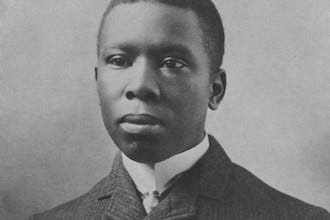
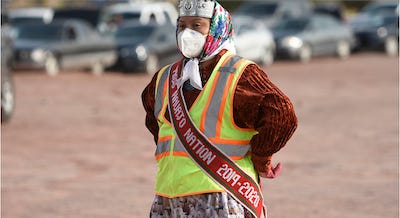
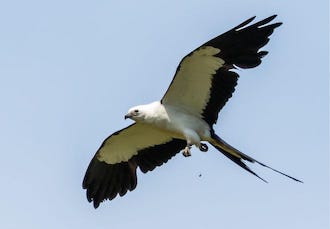
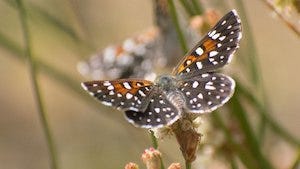
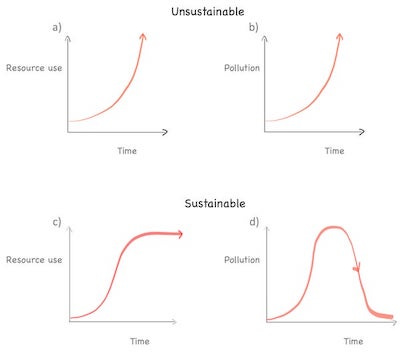
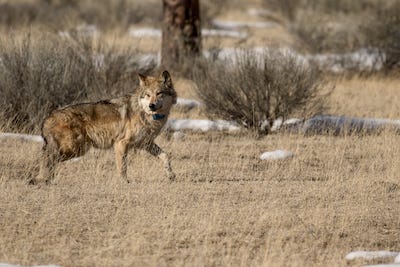
The Senate returns us to Jim Crow; GOP billionaire (the Gore-Tex fortune) subsidizes domestic spies; apple orchards at risk; flesh-eating parasites, owls disappearing; poison plastics; drought, yes the darkness is overwhelming.
But rays of light amid the blight: In California, GOP has fallen to 24 percent of the electorate. Republicans are self-immolating. Things are turning around since the time of the two plagues. We are awakening from the nightmare into a new and better world.